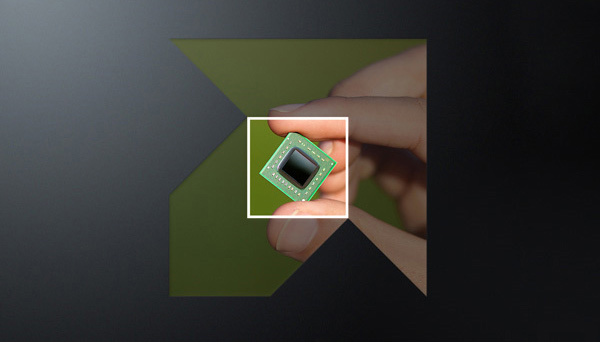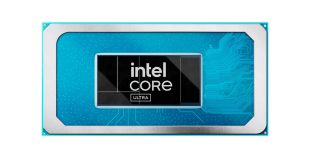FOLLOW UP: AMD clarifies cross-license with Intel: change of control terminates agreement for both
UPDATED:
Devinder Kumar, chief financial officer of Advanced Micro Devices, said in a statement last week that the company could enter into joint ventures, mergers or acquisitions (M&A) agreements without fearing of termination its cross-license pact with Intel Corp. Many industry observers believe that a bigger company cannot acquire AMD since this will terminate the deal with Intel and will leave AMD without an x86 license immediately.
Advanced Micro Devices has a cross-licensing agreement with Intel Corp. under which the companies use intellectual property (IP) and patents invented by each other. For example, AMD can develop and sell microprocessors compatible with Intel’s x86 instruction set architecture and featuring various extensions, whereas Intel can design and ship central processing units that utilize IP and extensions originally created by AMD. Since the companies are continually developing new technologies, the list of IP that is a part of the agreement is constantly updated.
“It is a cross-license, they use our technology all the time, especially in the x86 space that AMD has innovated in […] and there are patterns in place for that,” said Devinder Kumar at Jefferies global technology, media and telecom conference. “There is a lot of stuff that we invented or we deployed first, which the competition uses, it is not a one thing or three, which is a mistaken perception on the market that it is AMD using technologies that the competition has, as opposed to the other way around, it is a cross-license.”
Both companies take advantage of the cross-license agreement since this allows the chip designers to relatively quickly incorporate new functionality into products, which is a good for the industry in general. However, the pact has a number of limitations. For example, the companies are not allowed to build processors that are compatible with competitor’s infrastructure (e.g., sockets, mainboards, etc.). The companies also cannot change their ownership, merge with other companies on certain terms or enter into certain kind of joint-venture agreements that effectively change their ownership.

The cross-license agreement is automatically terminated when one of the parties changes its ownership or control. Many analysts believe that this clause in the agreement has kept multiple companies and strategic investors away from AMD because without an cross-license deal with Intel the company loses legal rights to build x86-compatible processors. Products containing Intel's x86 and other IP account for 70 per cent of AMD's revenue. However, AMD’s CFO denies that AMD will face drastic problems in case there is a change of control.
“Is there anything, any impediment from an M&A or joint-venture standpoint? The answer is no, there is no impediment from an overall M&A standpoint regarding the cross-license,” said Mr. Kumar.
Since Intel does use intellectual property of AMD inside its chips, it needs an agreement with AMD. However, it should be noted that if the cross-license between AMD and Intel is terminated because a party gets acquired by a third company, licenses granted to another party will survive unless that other party gets acquired too (i.e., if AMD is taken over, Intel sustains rights to AMD’s IP), in accordance with the term 5.2d of the agreement. The same happens if one company gets bankrupt.

Keeping in mind how important the cross-license agreement between Intel and AMD is, it is likely that any of AMD’s possible M&A actions will be discussed not only by the two companies, but also with the U.S. authorities, which prohibit imports of certain technologies to certain countries. In any case, it is noteworthy that the CFO of AMD does not reject the possible plan in general.
Discuss on our Facebook page, HERE.
KitGuru Says: Looks like AMD is sure that no matter what, Intel will sign a new cross-license agreement with it or its successor. At the end, AMD has a lot of patents, including graphics related, which could be used as a leverage to reach a new deal.
 KitGuru KitGuru.net – Tech News | Hardware News | Hardware Reviews | IOS | Mobile | Gaming | Graphics Cards
KitGuru KitGuru.net – Tech News | Hardware News | Hardware Reviews | IOS | Mobile | Gaming | Graphics Cards




What is the purpose of this article, other than to obfuscate the issue ? You quote AMD (CFO) as saying that the cross licensing is not an issue.
Then, without even naming another source, you make sweeping statements that contradict AMD’s position. You stopped short of calling Devinder a liar YET you asserted your own opinion as the truth !
Why is he making statements about this all of a sudden?
TAKEOVER INCOMING!!!! 😀
I’m so glad someone else picked up on this
This is typical KitGuru – although for pointing this kind of thing out, you will be banned from their Facebook page if you use your linked account to say this kind of thing.
☮☮☮☮☮chose like kitguru 1/hr 70dollors Find More
how about the fact that intel licenses the x64 instruction set from amd?
Let they sell ATI division to Intel, and merge with NV
inhell will go back to making 32bit chips. in their fkn face!
desperate intel employee (aka lackey) trolling here ?
You should look into AMD’s financial situation. They have been losing tons of money. In the trading scene, it’s thought that AMD will fold or be bought out by years end. Lots of people blowing up AMD saying they are going to destroy Nvidia and/or Intel with their incoming tech have no clue about what’s going on behind the doors. I honestly hope they don’t fold, so we don’t have monopolies, would make things a lot worse for us consumers. But it’s hard to argue when you look into what’s going on with the financial side of things.
At the same time, though, we’re really close to getting some new GPUs from them, they’re headlining the PC Gaming show at E3, and Apple just launched a new Macbook Pro with an AMD card in it. Things don’t look good, you’re right, but there’s a nonzero probability that they can turn themselves around before they fall apart.
AMD desperately needs to get bought out by a company with deep pockets and competent leadership.
I hope so.
Ah ok fair enough, thanks for the background. I actually read a lot of news but haven’t come across this one.
News articles should at least have a quick paragraph that explains the background behind the news story, then I wouldn’t have to go trotting around the internet looking all ignorant would I? 🙂
Me too, man. Me too.
Looks clear cut, from: http://www.kitguru.net/components/cpu/anton-shilov/amd-clarifies-cross-license-with-intel-change-of-control-terminates-agreement-for-both/ quotes…
“Advanced Micro Devices has clarified terms of the cross-license agreement with Intel Corp. on Thursday. As it appears, if either AMD or Intel change their control (i.e., gets acquired), the cross-license agreement between the two companies is automatically terminated for both parties.”
Try reading…
“Since Intel does use intellectual property of AMD inside its chips, it needs an agreement with AMD. However, it should be noted that if the cross-license between AMD and Intel is terminated because a party gets acquired by a third company, licenses granted to another party will survive unless that other party gets acquired too”
not possible but if possible then Samsung would buy AMD
@Anton Shilov
The point that you are neglecting to mention is HOW the ACQUIRING ENTIY CAN IN FACT gain a Cross LIcense from Intel. The FTC has ordered Intel to Negotiate in Good Faith with ANY Acquiring entity a new Cross-License.
If Samsung wanted to buy AMD they could easily gain a new Cross-License and the FTC would be the FINAL arbiter.
Since you are in communication with Mr. Kumar, this can easily be confirmed. Also anyone who knows how to read can read it for themselves.
The FTC wants AMD to be able to form mergers and joint-ventures free from lawsuits from Intel. The FTC also has ORDERED Intel to Negotiate in Good Faith with the next acquiring entity. The FTC also has retained full authority as to what exactly good faith is. In short any acquiring entity will get an x86 license under similar terms that AMD previously had in a reasonable amount of time.
Intel agreed to ALL of this as it was the condition to approve the settlement agreement with AMD.
This is the relevant text from the Federal Register:
48342-48342 Federal Register / Vol. 75, No. 153 / Tuesday,
August 10, 2010 / Notices
“The existing change of control terms in licensing
agreements potentially limit the ability of AMD, NVIDIA, and Via to take part
in a merger or joint venture, or to raise capital. The provisions in the
Proposed Consent Order are designed to allow AMD, NVIDIA, and Via to enter into
a merger or joint venture with a third party, or to otherwise raise capital,
without exposing itself to an immediate patent infringement suit by Intel. In
the event that AMD, NVIDIA, or Via undergo a change of control, these
provisions prohibit Intel from suing for patent infringement for 30 days.
Furthermore, Intel must offer a one-year standstill agreement during which the
acquiring party and Intel would not sue each other for patent infringement
while both parties enter into good faith negotiations over a new license
agreement. …..
The Commission takes seriously Intel’s commitment under these
provisions in the Proposed Consent Order. The Commission has authority under
the Order to evaluate and determine whether Intel in fact engages in good faith
negotiations and the Commission will be able to enforce the Proposed Consent
Order if Intel does not negotiate in good faith. In the event
the change of control terms are invoked, the Commission will carefully
scrutinize Intel’s conduct and take action, if appropriate.”
https://www.ftc.gov/sites/defa…
I recall reading an article which stated that AMD has to repay most of its debt by 2019. Hopefully that means they have time to try new things until then, at least.
There is a followup article: http://www.kitguru.net/components/cpu/anton-shilov/amd-clarifies-cross-license-with-intel-change-of-control-terminates-agreement-for-both/ Additionally you can bring Intel to the negotiation table but does not necessarily mean Intel will easily agree or can even drag the negotiations for years without results. There is no provision in there to say Intel must agree other than “negotiate in good faith”. As for the IP licenses, its already very clear in the cross licensing agreement: http://www.sec.gov/Archives/edgar/data/2488/000119312509236705/dex102.htm Intel keeps all IP licenses including x64 however the party that broke or terminated the agreement will not. For example, the acquiring party can still use x64 (including Intel’s 32-bit ones, which has expired) but cannot use Intel’s newer SSE, SSE2, SSE4 and AVX extensions…
The original AMD64 architecture adopted Intel’s SSE and SSE2 as core instructions so they deffinately can use SSE and SSE2.. https://en.wikipedia.org/wiki/X86-64 Basically AMD64 or x86-64 doesn’t work without SSE and SSE2.
HSA is the future of computing so selling off ATI would put the final nail in AMD’s coffin. Even Intel has been on the APU train for several gens now. Without ATI there is no AMD..
Ever hear of PAE or IA-64? Intel has options, granted they currently suck but with major Intel cash they can make it work by brute force..
May 20th, 2015 at 9:04 pm – AuthorAnton Shilov
7 Flares7 Flares×
FOLLOW UP: AMD clarifies cross-license with Intel: change of control terminates agreement for bothUPDATED: Certain terms and statements have been corrected.
Devinder Kumar, chief financial officer of Advanced Micro Devices, said in a statement last week that the company could enter into joint ventures, mergers or acquisitions (M&A) agreements without fearing of termination its cross-license pact with Intel Corp. Many industry observers believe that a bigger company cannot acquire AMD since this will terminate the deal with Intel and will leave AMD without an x86 license immediately.
Advanced Micro Devices has a cross-licensing agreement with Intel Corp. under which the companies use intellectual property (IP) and patents invented by each other. For example, AMD can develop and sell microprocessors compatible with Intel’s x86 instruction set architecture and featuring various extensions, whereas Intel can design and ship central processing units that utilize IP and extensions originally created by AMD. Since the companies are continually developing new technologies, the list of IP that is a part of the agreement is constantly updated
Even though this is a two years old article. I still want to point out the second last paragraph is incorrect. According to the cross-license agreement, If AMD get acquired Intel will also lose access to AMD’s X64 patent (They invented it), so it is extremely likely Intel would immediately want to forge a new agreement with the new owner.
Section 5.2c “Termination Upon Change of Control. Subject to the terms of, and as further set forth in, Sections 5.2(d) and 5.2(e), this Agreement shall automatically terminate as a whole upon the consummation of a Change of Control of either Party.”
Section 5.2d (ii) “In the event of any termination of this Agreement pursuant to Section 5.2(c), and subject to the provisions of Section 5.2(e), the rights and licenses granted to both Parties under this Agreement, including without limitation the rights granted under Section 3.8(d), shall terminate as of the effective date of such termination.”
Notice the part where it says “terminate as a whole” and “licenses granted to both Parties…..shall terminate as of the effective date of such termination.”